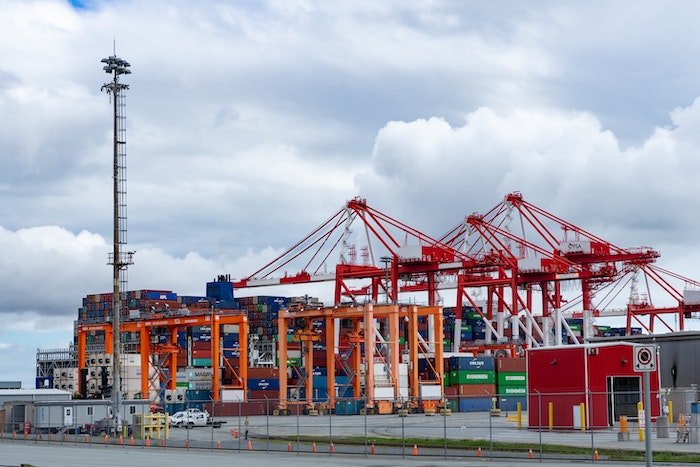Port congestion continues to wreak havoc in the U.S. and Canada

U.S. and Canadian ports are continuing to feel the pressure, with ongoing congestion resulting in canceled sailings for September, cuts in vessel services, high warehouse prices and increased anchored vessels on the East Coast, according to a report by CNBC.
“It comes as no surprise ocean carriers are blanking (canceling) sailings,” said Alan Baer, CEO of OL USA. “It needs to be done to regain some sort of schedule reliability.”
The result is that all of these vessels will now be out of position for return voyages, moving containers, loading U.S. exports, and ultimately being in a position to load imports.
“A lot of this was the result of moving freight away from USWC arrivals due to labor disruption risk,” Baer said.
According to MarineTraffic data, Port of Savannah has 39 vessels at anchor. In the Gulf, at the Port of Houston, there are 22 cargo ships at anchor.
The port congestion has ocean carriers, most recently MSC, announcing modifications to its vessel schedule. In July, Seko Logistics and Worldwide Logistics explained to shippers the East Coast congestion was impacting the arrivals of vessels back to Port of Shenzen for reloading.
However, the increase of containers on the East Coast is benefiting the warehouse sector, with warehousing costs increasing fast on the East Coast, up 8 percent since January, according to Jordan Brunk, CMO of WarehouseQuote.
Pricing on the West Coast has decreased consistently for the past two months, but Brunk still described rates as “expensive.” But he added, “We are seeing a shift of freight that was traditionally held on the West Coast now moving to the Northeast and Southwest.”
Furthermore, Ocean booking levels from China to the major West and East Coast ports remain well off their two year highs according to Tony Mulvey, Senior Analyst at FreightWaves.
“As booking levels, which indicate future import volumes, continue their descent, peak season demand on the ocean looks muted,” Mulvey said. “Softer demand on the ocean is leading to carriers increasing the number of blank sailings in an effort to slow the rapid decline in Trans-Pacific spot rates.”
More complications for East Coast ports are anticipated as a result of the strike at Felixstowe, which is slowing down $4.7 billion in trade and may hit U.S. imports once the backlog starts to get sorted out, according to Captain Adil Ashiq, United States Western Region executive for MarineTraffic.
To read the full report, please click here.












































